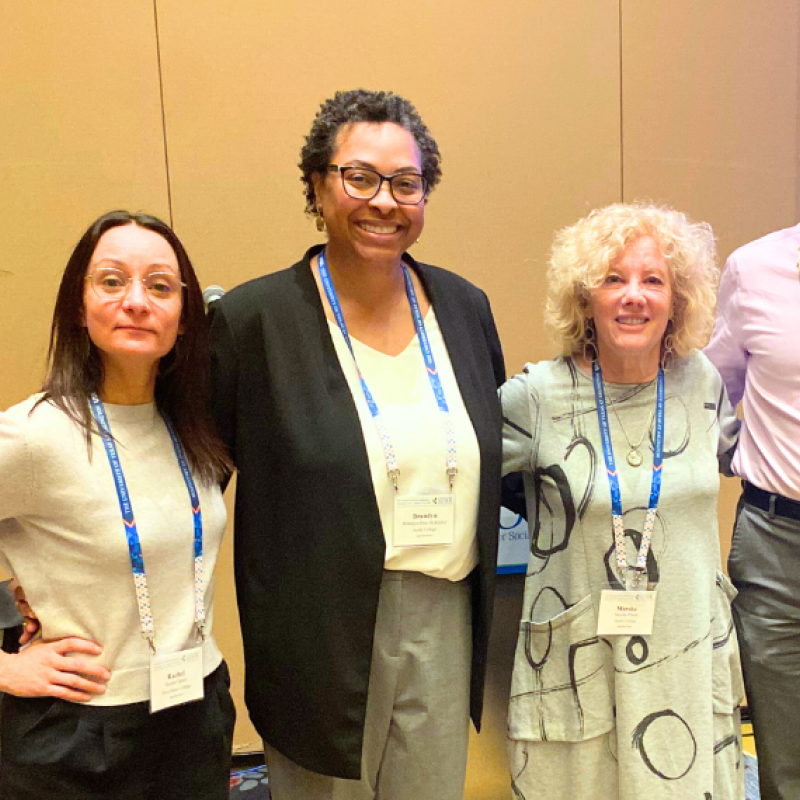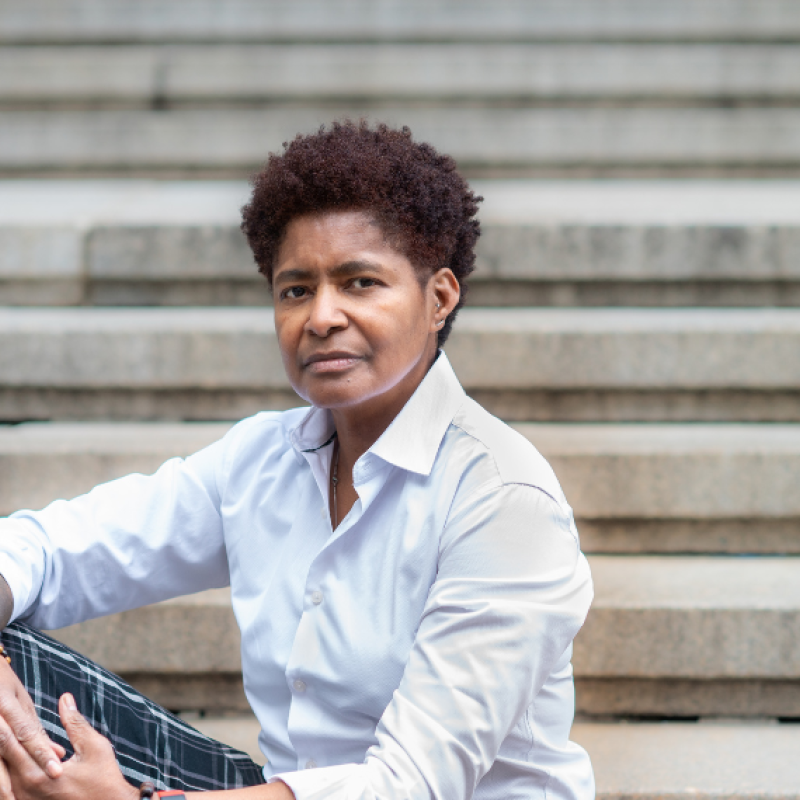My dear community,
This fall at SSW we have been busy planning and preparing for the upcoming year. Our admission team was back on the road, we have begun planning the first of many alumni events in cities around the country and our Anti-Racism Planning Group (ARPG) and Strategic Visioning Group (SVG) continue to develop new practices–and refine existing ones–to be shared with our community in 2023.
Over the past several years, we have often acknowledged and celebrated the importance of the legacy of Reverend Dr. Martin Luther King, Jr. each January through sharing one of his inspirational quotes. As we strive to provide more transparency and authenticity in our own racial justice work, we want to change the way we acknowledge and celebrate the legacy of Dr. King. Going forward, rather than sharing one of Dr. King’s quotes, we commit to sharing regular updates about what we are doing to align our programs and operations with our five Core Principles. Every January and September we will report out on our goals and progress to our community. We offer this in acknowledgement of the importance of finding ways to make Dr. King’s work and values actionable.
UPDATES ON OUR WORK
As you know, in 2019 our School committed to five Core Principles of racial justice to guide all areas of our programs and operations. We are deeply engaged in making the changes needed to bring this to reality. While we have much work to do, there are concrete and real differences we have begun making now.
This work is directed in large part by the ARPG under the direction of Professor JaLisa Williams and Janae Peters, M.S.W. ’15, adjunct faculty and coordinator of the Sotomayor Collective.
ARPG previously identified three primary areas of focus that align with the principles: developing a classroom-based accountability process, expanding the Sotomayor Fellowship into the Sotomayor Collective and building a program of healing and community building.
This work is underway! It is generative and challenging and important. ARPG has been working with Professor Loretta Ross at Smith College to consider how Professor Ross’s work around calling in can be adapted and integrated into SSW’s Classroom-Based Accountability Process to ensure there is a way to address when something hurtful or harmful occurs in the classroom, and to create conditions for repair. This is one of the key parts of our Principle 2: Ensure accountability at the individual, program and institutional levels and that there are meaningful processes for repair and reconciliation.
The second focus of the ARPG has been to transform the Sotomayor Fellowship into a Sotomayor Collective. Forming the collective will expand the work of the fellows beyond individual consultation to offering or identifying training that will support our community in growing our capacity to be more compassionate and caring, and to foster accountability and repair when harm occurs. We have begun this work by expanding the Fellowship to include three members who are considering how to engage others in a collective and how they wish to operate.
The third focus of the ARPG has been to create rituals of healing and community building. Creating opportunities to cultivate joy and restoration is an important part of our plan for transformation. This summer we anticipate a soulful opening ceremony, events to celebrate Juneteenth and engage in deep learning about anti-Blackness and a final ceremony to bring the summer terms to a close, recognizing the hurts and joys, successes and failures.
Another aspect of the work of building a caring accountable community has been taken up by the Strategic Visioning Group. I am currently heading our second multi-constituent workgroup of students, faculty and staff who are working to create a community agreement for all prospective and current faculty, students and staff. The agreement outlines the basic expectations that we wish to hold gently with one another—the expectations that aim to build a community culture of care, compassion and accountability.
Our third and last multi-constituent workgroup headed by Professor Rory Crath is building evaluation processes to assess the extent to which our efforts are making a difference in the day-to-day experience of our community members, specifically of Black students, faculty and staff and students, faculty and staff of color and others who hold marginalized identities.
In our work that goes beyond these processes, we have an important M.S.W. curricular revision underway as we continue our commitment to relationally-based clinical practice. We are challenging ourselves to use Principle 3 to more deeply re-center our curriculum on the knowledge, strength and beauty of Black communities, communities of color, Indigenous communities and other communities that have experienced marginalization. Later this spring I will offer more information about this work.
Our new Director of Alumni Engagement, Katie Potocnik Medina, is partnering with Associate Dean of Academic Affairs Megan Harding to offer a number of alumni events around the country where Megan will present our M.S.W. curriculum and gather input and feedback from alumni. This spring and summer we will be offering these curricular brunches in Boston, Washington D.C., New York and San Francisco. Katie is planning to organize these events annually in different parts of the country as a way of strengthening the bridge between our amazing alumni and our current students and curriculum.
Finally, many of you are aware of ongoing advocacy to address the egregious bias within state social work licensing exams. Recently after much pressure, the Association of Social Work Boards (ASWB) released a report documenting examination pass rates across different levels of the social work profession. Their data suggest alarming disparities for exam-takers based on race, English language proficiency and other dimensions. Recently, I joined with other Massachusetts directors and deans of social work programs, NASW and a consortium of hospital directors to take legislative action to propose a bill to replace the test at the LCSW level with alternate pathways to licensure. The issue comes with some complexity as you can imagine. I’ll offer more detailed information on this issue in our spring InDepth magazine.
As we begin this new year, I look forward to connecting with many of you and to continuing the work and conversations we have begun.
All my best,
Marianne RM Yoshioka, MBA, Ph.D., LCSW
Dean and Elizabeth Marting Treuhaft Professor
Co-editor, Smith College Studies in Social Work
Smith College School for Social Work


